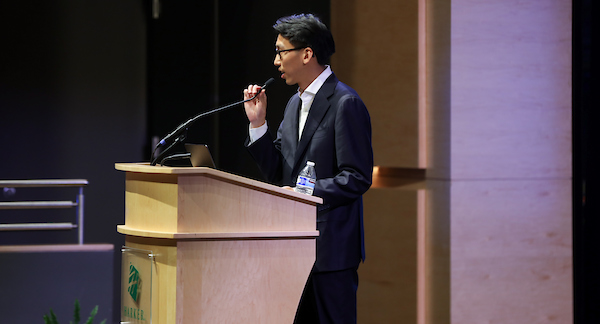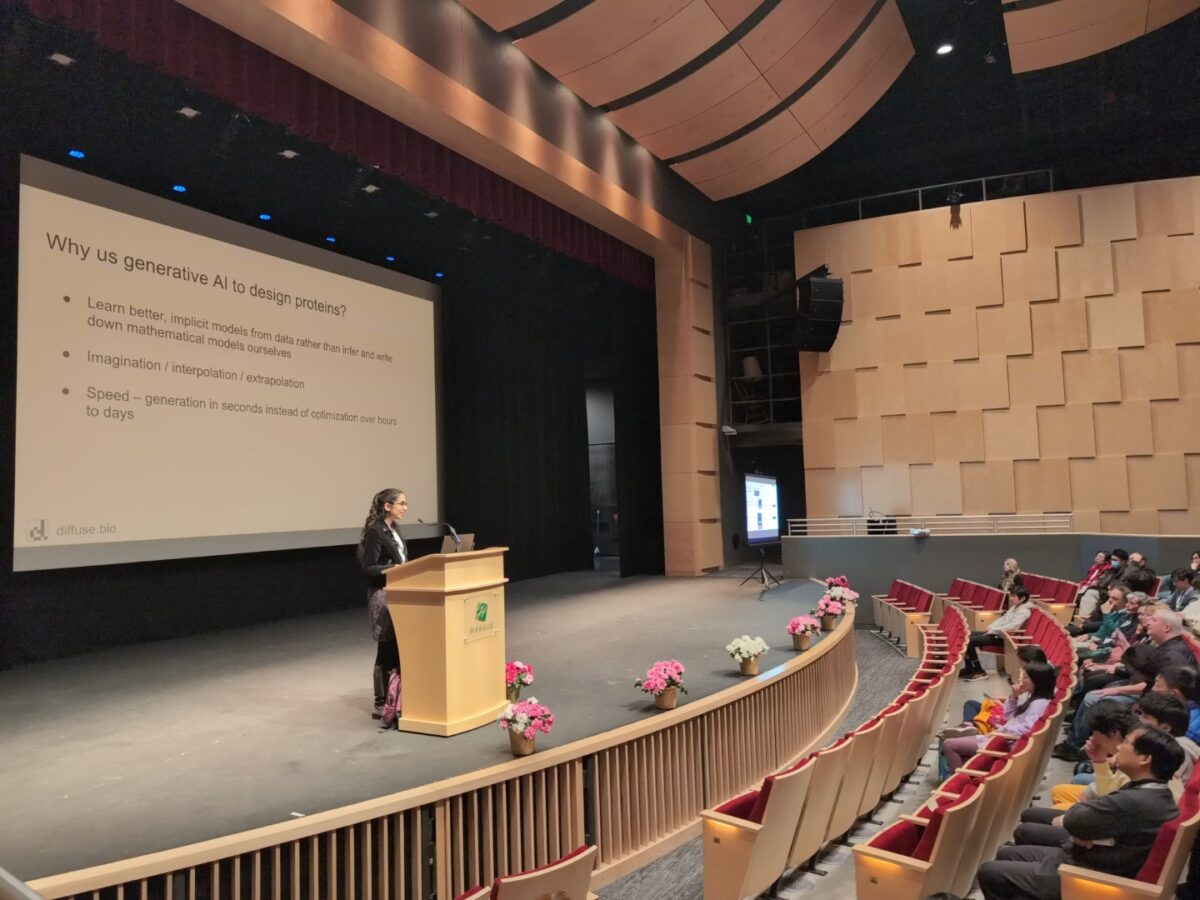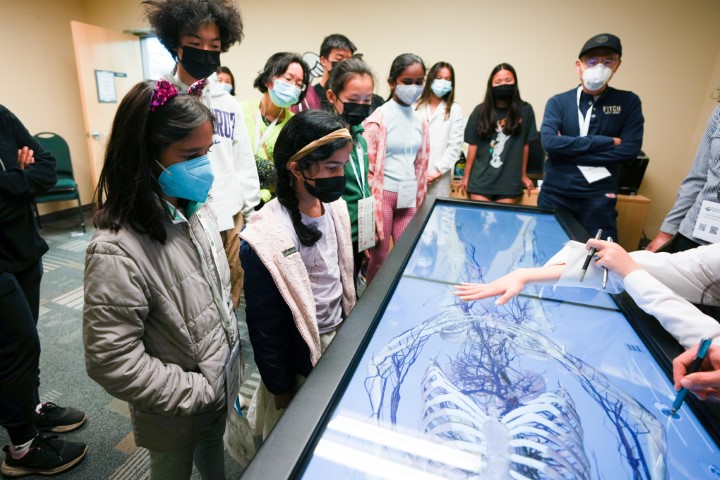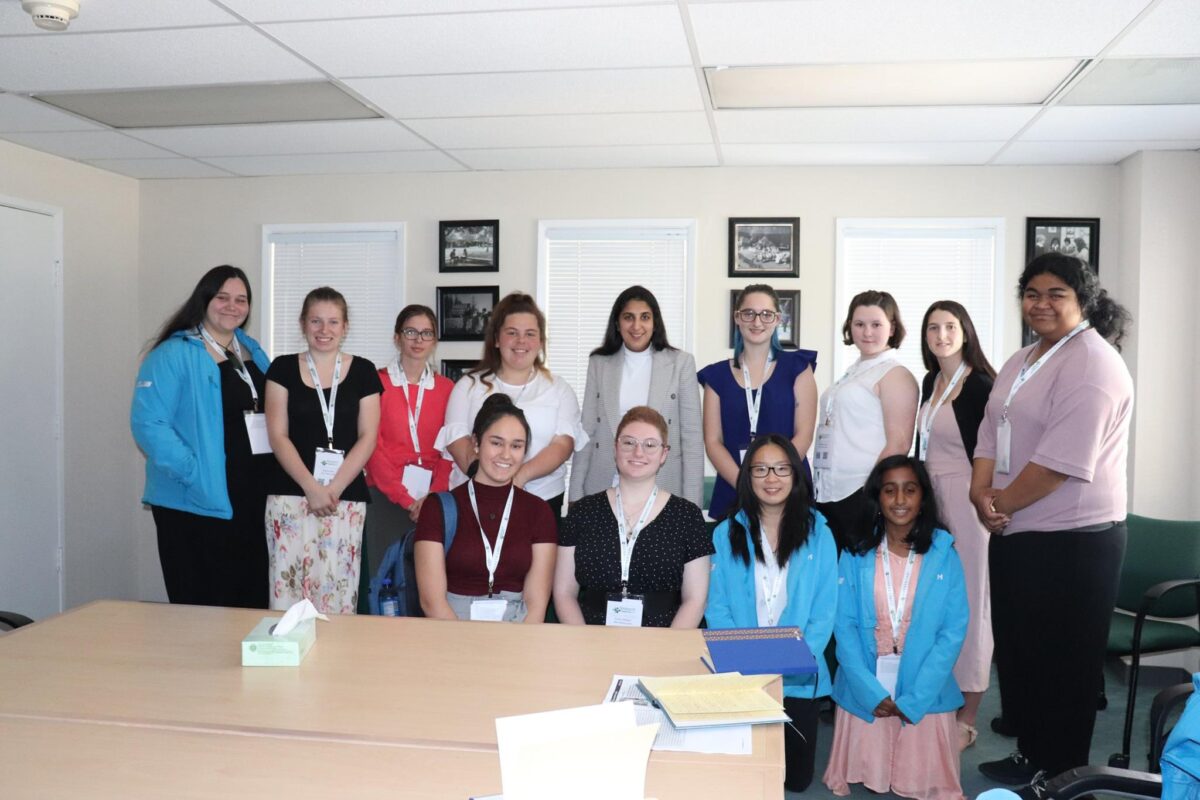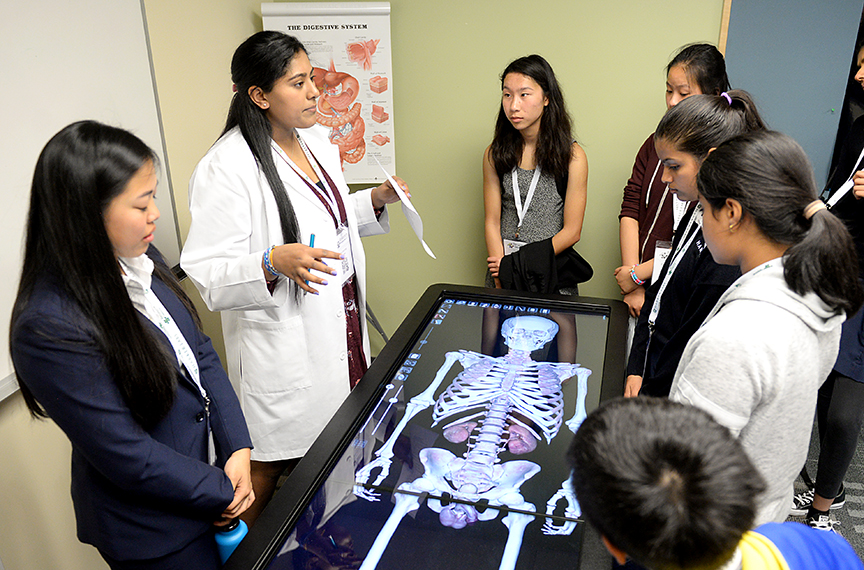More than 600 registrants flocked to the upper school campus on April 12 for the 19th annual Harker Research Symposium: “AI Trends: The Future is Now.”
Harker Research Symposium
Luminaries discuss “The AI Revolution” at 2024 Research Symposium
More than 800 people attended this year’s Research Symposium, organized by WiSTEM.
Research Symposium returns to upper school campus
On April 16, the Harker Research Symposium welcomed attendees to the upper school campus for the first time since 2019.
Visit from students from New Zealand kicks off joint effort to increase STEM participation among young women
In April, Harker received a visit from a group of high school girls from New Zealand in what is expected to be the start…
Harker Research Symposium attracts 800 science enthusiasts
In one of its best-attended years to date, the Harker Research Symposium attracted about 800 visitors from across the Harker community to recognize the school’s dedication to the sciences and encourage sustainable lifestyles and policies.
